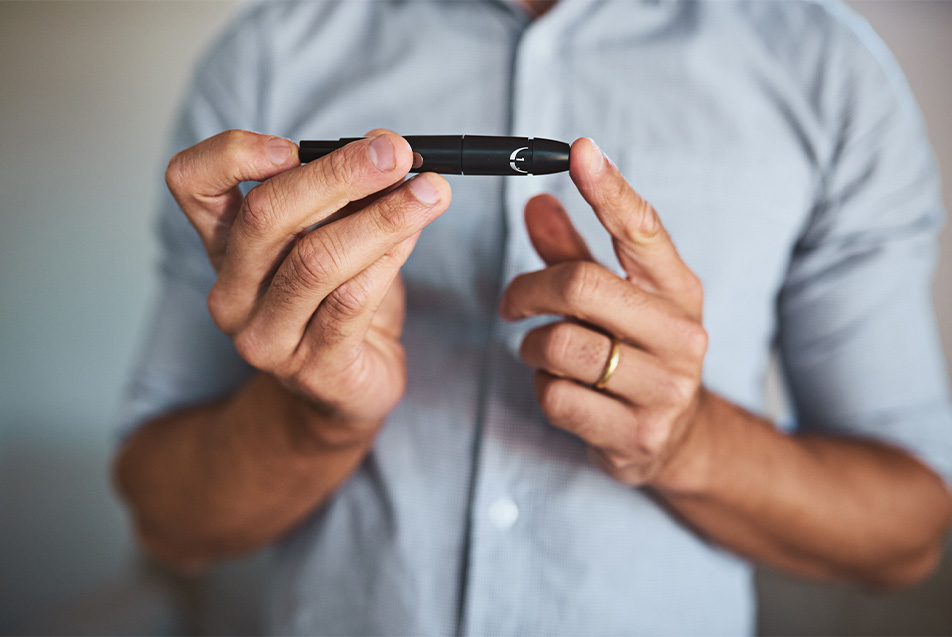
There’s no doubt that a diabetes diagnosis can be life-changing, but did you know it can also cause severe complications for the rest of your body? Emily Schroeder, MD, PPG – Endocrinology, speaks on the importance of your kidneys, the impact diabetes has on them and the steps you can take to stay healthy.
If you are living with diabetes, you may have questions about how the disease can affect your kidneys, so let’s explore it. Our kidneys are extremely important. They have millions of blood vessels, acting as filters, working to rid our blood of any waste and excess fluid. Unfortunately, diabetes can damage the kidneys and hinder this process or cause it to fail altogether. This failure can lead to diabetic kidney disease. It occurs in approximately 1 out of 3 people, making diabetes the leading cause of kidney failure in the United States.
Warning signs and symptoms
With diabetes, both high blood sugars and high blood pressure can damage the kidneys. Chronic kidney disease usually develops over time and, in its early stages, is often asymptomatic. However, as it progresses, symptoms can include high blood pressure, swelling in the legs, muscle cramps and an increased need to urinate, particularly at night. Eventually, individuals may require dialysis.
Prevention
The good news? Diabetic kidney disease is often preventable. Here are a few steps you can take to help prevent the condition:
- Testing: You should get your kidneys tested at least once a year. This usually involves a blood and urine test. Also, speak with your healthcare provider to ensure you are up to date on any other recommended screenings or tests.
- Control your blood pressure: If you have high blood pressure, it’s best to work with your provider to keep it under control. High blood pressure is one of the predictors for diabetic kidney disease.
- Medications: Be sure to speak with your doctor about blood pressure medications and which medicines effectively prevent diabetic kidney disease. Some of these include angiotensin-converting enzyme (ACE) inhibitors and angiotensin-2 receptor blockers (ARBs).
- Blood sugar: Take the time to work with your healthcare team to keep your blood sugar in check and within your target range.
- Get up and move: Don’t forget to stay physically active. Exercise is a great way to help lower your blood pressure as well as your blood sugar levels.



